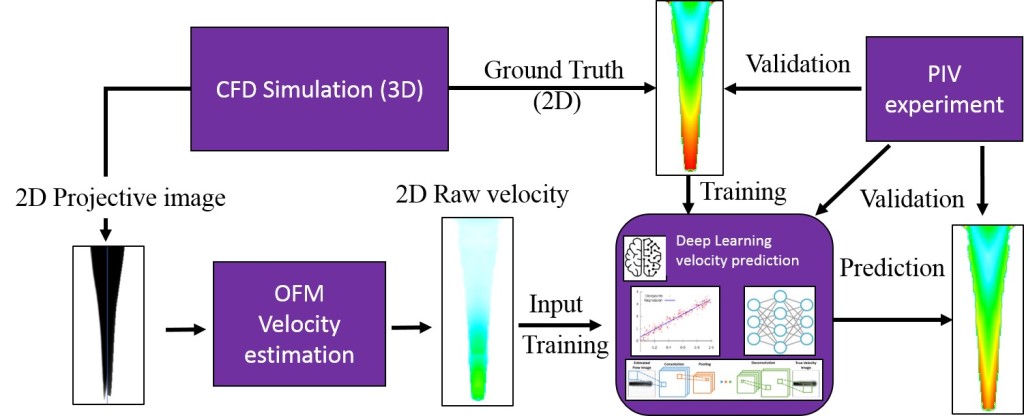Preprint
Article
Machine Learning for Aiding Blood Flow Velocity Estimation Based on Angiography
This version is not peer-reviewed.
Submitted:
28 September 2022
Posted:
29 September 2022
You are already at the latest version
A peer-reviewed article of this preprint also exists.
Abstract
Detailed flow distributions in vascular systems are the key to identifying hemodynamic risk factors for the development and progression of vascular diseases. Although computational fluid dynamics (CFD) has been widely used in bioengineering research on hemodynamics predictions, not only are high-fidelity CFD simulations time-consuming and computing-expensive, but also not friendly to clinical applications due to the difficulty of comprehensive numerical calculations. Machine learning (ML) algorithums to estimate the flow field in vascular systems based on the angiographic images of the blood flow using existed diagnostic tools are emerging as a new pathway to facilitate the mapping of hemodynamics. In present work, the dye injection in a water flow was simulated as an analogy of the contrast perfusion in blood flow using CFD. In the simulation, the light passes through the flow field and generates projective images, as an analogy of X-ray imaging. The simulations provide both the ground truth velocity field and the projective images of the flow with dye patterns. A rough velocity field was estimated using the optical flow method (OFM) based on projective images. ML algorithums are then trained using the ground truth CFD data and the OFM velocity estimation as the input. Finally, the interpretable (logistic regression) and deep (neural networks, convolutional neural networks, long short term memory) machine learning models are validated by using parallel in vitro experiments on the same flow setup. The validation results showed that the employed ML model significantly reduced the error rate from 53.5% to 2.5% in average for the v-velocity estimation.

Keywords:
Subject:
Computer Science and Mathematics - Artificial Intelligence and Machine LearningCopyright: This open access article is published under a Creative Commons CC BY 4.0 license, which permit the free download, distribution, and reuse, provided that the author and preprint are cited in any reuse.
Alerts
MDPI Initiatives
Important Links
© 2025 MDPI (Basel, Switzerland) unless otherwise stated







